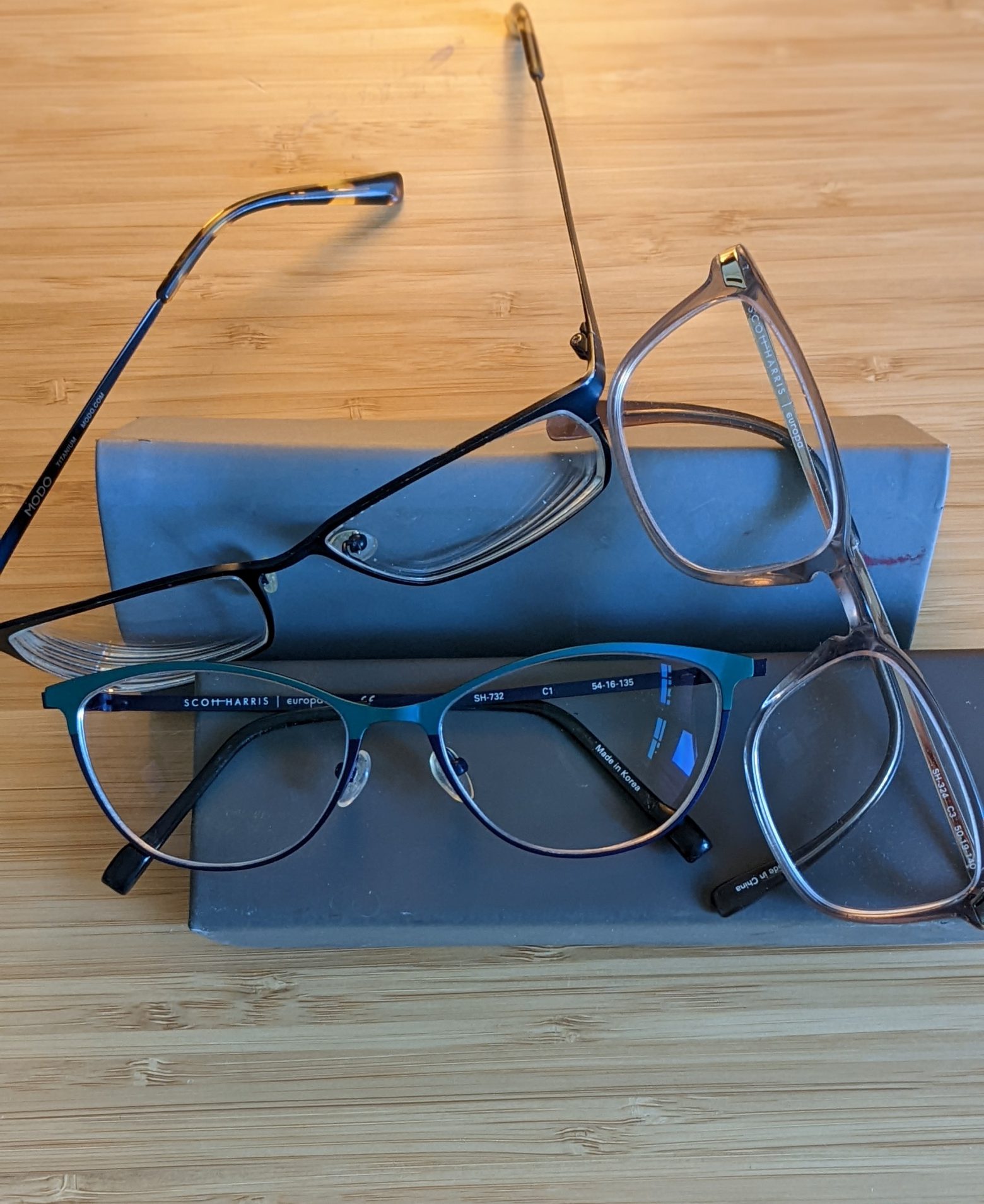In honor of National Glaucoma Awareness Month (January) and eye health I want to talk a little bit about eyewear. I’m going to share about eyeglasses and eyedrops here. You can learn about contact lens recycling in my post I’ve Got My Eyes On You.
First, about glaucoma:
Glaucoma is called “the sneak thief of sight” since there are no symptoms and once vision is lost, it’s permanent. As much as 40% of vision can be lost without a person noticing.
Glaucoma is the leading cause of irreversible blindness. Moreover, among African American and Latino populations, glaucoma is more prevalent. Glaucoma is 6 to 8 times more common in African Americans than Caucasians.
Over 3 million Americans, and over 60 million people worldwide, have glaucoma. Experts estimate that half of them don’t know they have it. Combined with our aging population, we can see an epidemic of blindness looming if we don’t raise awareness about the importance of regular eye examinations to preserve vision. The World Health Organization [WHO] estimates that 4.5 million people worldwide are blind due to glaucoma.
https://www.glaucoma.org/news/glaucoma-awareness-month.php
Eyeglasses
The World Health Organization (WHO) estimates 153 million people around the world have uncorrected refractive errors (nearsightedness, farsightedness and astigmatism). Refractive errors can be easily corrected with eyeglasses, yet millions of people in low and middle-income countries lack access to basic vision services. Without eyeglasses many people throughout the world have fewer opportunities for education, employment and a better quality of life.
https://austindowntownlions.org/Eyeglasses_Recycling
Eyeglasses can be recycled/repurposed/reused. If you don’t want to keep your old frames and change just the lens for your new prescription, please consider recycling your eyewear so someone else may enjoy them. The Austin Founder Lions Club created a list of facilities in Central Austin, Texas that collect old eyeglasses.
The Journey of Recycled Glasses [when Lions Club is involved]
The glasses are shipped to the Texas Lions Eyeglass Recycling Center in Midland Texas where trained volunteers sort, clean and determine the prescription strengths of the glasses.
Volunteers at the recycling center carefully package the prepared glasses and store them until they are required for overseas eyeglass dispensing missions. Glasses that are not suitable for reuse are recycled for scrap, with the earnings benefiting local Lions and Leos projects. Each year, the Texas Lions Eyeglass Recycling Center supplies 60-80 missions sponsored by church groups, physicians and other organizations with used eyeglasses.
At the mission site, eye care professionals and trained Lion and Leo volunteers perform vision screenings and dispense the appropriate recycled glasses, free of charge, to children and adults in need.
https://austindowntownlions.org/Eyeglasses_Recycling
If you are outside the Austin, TX area, are a current patient, or happen to drive by, the following locations and programs also accept old eyeglasses and cases for repurposing and recycling. Sometimes people need prescription sunglasses too, so don’t forget to include those as well.
- Envision Eye Center
- Lenscrafters
- VisionWorks
- Walmart
- Costco
- Sam’s Club
- David Kind trade up program for a coupon off a new pair
Please call ahead to the location nearest to you to make sure they are still participating in eyeglasses recycling, and that they are accepting items during COVID. Some recycling programs have paused services during COVID.
Eyedrops
In addition to over-the-counter uses like re-wetting, allergies, etc., one of the treatments for glaucoma include eyedrops. Zero waste tips for eyedrops and eye drop single dose units are:
- The larger the size you are able to purchase, the cheaper the cost per unit should be. This may not always be the case so check at your pharmacy or with your medical prescriber if it’s a prescription. If you buy a larger size, make sure that you will use the entire amount before the expiration date. If you won’t use all of the eyedrops, you may be saving resources instead of money by purchasing a smaller size.
- Eyedrop plastic bottles and lids can be recyclable plastic. The same can be said for eye drop single dose units. Check with your local recycling provider to see what types, colors and sizes of plastics they accept. Please make sure containers are empty before recycling.
- Eyedrop bottles and single dose units tend to be smaller than a credit card and so theoretically may fall through or jam your local single-stream recycling sorting machine. If you have been instructed that these small items are too small for your single stream recycling carts or collection, consider collecting them separately and taking them to a Hard Plastics recycling facility. The City of Austin accepts plastic items smaller than a credit card at its Hard Plastics station near the front of the Recycling & Reuse Drop-off Center.
- There is a TerraCycle Biotrue® Eye Care Recycling Program that accepts, “Biotrue contact lens cases, contact lens solution caps (no bottles [these can go in your single-stream recycling carts]), eye drop single dose units and eye drop bottles” if this is more accessible or convenient for you.
I will share with you that discussing my level of eye dryness and the amount of drops I was using with my eye doctor was a great starting point to reduce the number of eyedrops I was using. Switching to a more breathable/newer contact lens prescription drastically cut down on how many bottles I was going through. Switching contact lens type, wearing glasses more, and discussing all your options with your doctor may be helpful to your eye health and a little more green.
I wish you health and happiness.
#glaucoma #eyeglasses #glasses #eyeglassesrecycling #lionsclub #recycle #recyclemore #helpingothers #lesslandfill #zerowaste #eyedrops #recycleplastic #eyehealth
You may also like:
- I’ve Got My Eyes On You (includes information on contact lens recycling)
- Where Do I Donate/Recycle?
